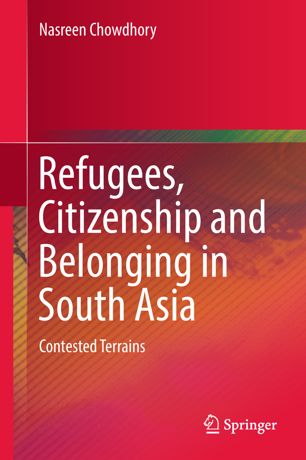

Most ebook files are in PDF format, so you can easily read them using various software such as Foxit Reader or directly on the Google Chrome browser.
Some ebook files are released by publishers in other formats such as .awz, .mobi, .epub, .fb2, etc. You may need to install specific software to read these formats on mobile/PC, such as Calibre.
Please read the tutorial at this link: https://ebookbell.com/faq
We offer FREE conversion to the popular formats you request; however, this may take some time. Therefore, right after payment, please email us, and we will try to provide the service as quickly as possible.
For some exceptional file formats or broken links (if any), please refrain from opening any disputes. Instead, email us first, and we will try to assist within a maximum of 6 hours.
EbookBell Team

5.0
58 reviewsThis book examines forced migration of two refugees groups in South Asia. The author discusses the claims of “belonging” of refugees, and asserts that in practice “belonging” can extend beyond the state-centric understanding of membership in South Asian states. She addresses two sets of interrelated questions: what factors determine whether refugees are relocated to their home countries in South Asia, and why do some repatriated groups re-integrate more successfully than others in “post-peace” South Asian states? This book answers these questions through a study of refugees from Sri Lanka and Bangladesh who sought asylum in India and were later relocated to their countries of origin. Since postcolonial societies have a typical kind of state-formation, in South Asia’s case this has profoundly shaped questions of belonging and membership. The debate tends to focus on citizenship, making it a benchmark to demarcate inclusion and exclusion in South Asian states. In addition to qualitative analysis, this book includes narratives of Sri Lankan and Chakma refugees in post-conflict and post-peace Sri Lanka and Bangladesh respectively, and critiques the impact of macro policies from the bottom up.